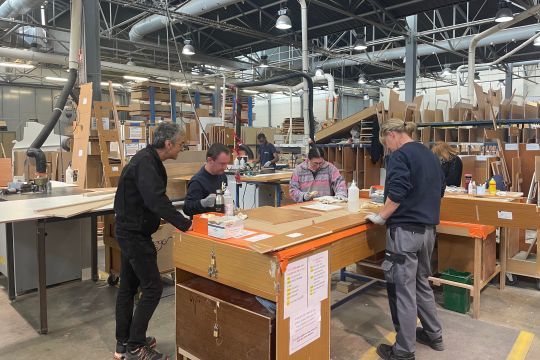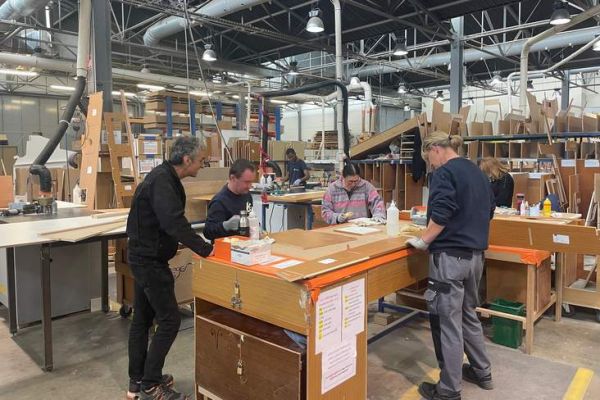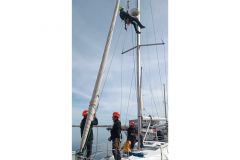A human story
As is often the case with good projects, the idea of integrating employees from ESATs into Dufour Yachts was the result of an encounter, says Franck Bonot, HR Director at the La Rochelle-based monohull yacht builder: "It's a story about parents chatting after school. That's how I found out about the existence of a scheme that would enable disabled people from an ESAT to be brought directly into a company, rather than a simple subcontracting relationship. Being personally very open to inclusion, out of conviction and through my personal history, I met with UNAPI and we thought about the feasibility within a boatbuilder."

Full integration in boat building
With a single line, skilled trades and almost 600 employees, the challenge may seem daunting. After discussions with UNAPI and the ESAT, the joinery workshop was identified as the most appropriate for the integration of disabled employees. With 90 employees and the possibility of performing simple, repetitive tasks in a reassuring environment, the carpentry workshop was chosen. Franck Bonot explains: "I didn't want them to be in a corner doing shelving or storekeeping, but to contribute just as much as everyone else to the making of the boat."
6 disabled employees at Dufour
Once the framework had been clearly defined, a test period was carried out between November and December 2023 with 6 people from the ESAT, mainly suffering from mental deficiencies and some from physical problems. After a successful trial period, their presence was made permanent at the start of 2024. Working double shifts in the carpentry department with another employee, from Monday to Thursday, and supported by a monitor, they have been perfectly integrated," emphasizes the HR Director: "We had imagined brakes that didn't exist. They've been made invisible, but in the right sense of the word, melted into the mass of employees. We're seeing a sharp rise in their skills, the aim being, if they feel autonomous, to hire them on permanent contracts."

An asset for the company
For the Human Resources Director, the results are positive at all levels: "There's been a change in behavior in transmission and in welcoming new arrivals in general. The employees are proud of this, and we've even noticed a gain in efficiency among all employees."
While we wait to see whether this can be replicated for other jobs, the initiative can serve as an example. With the ESAT covering the cost of the monitor, and the salary costs of an unpaid minimum wage, the company is able to carry out the initiative without any major investment, while still fulfilling its social role.















